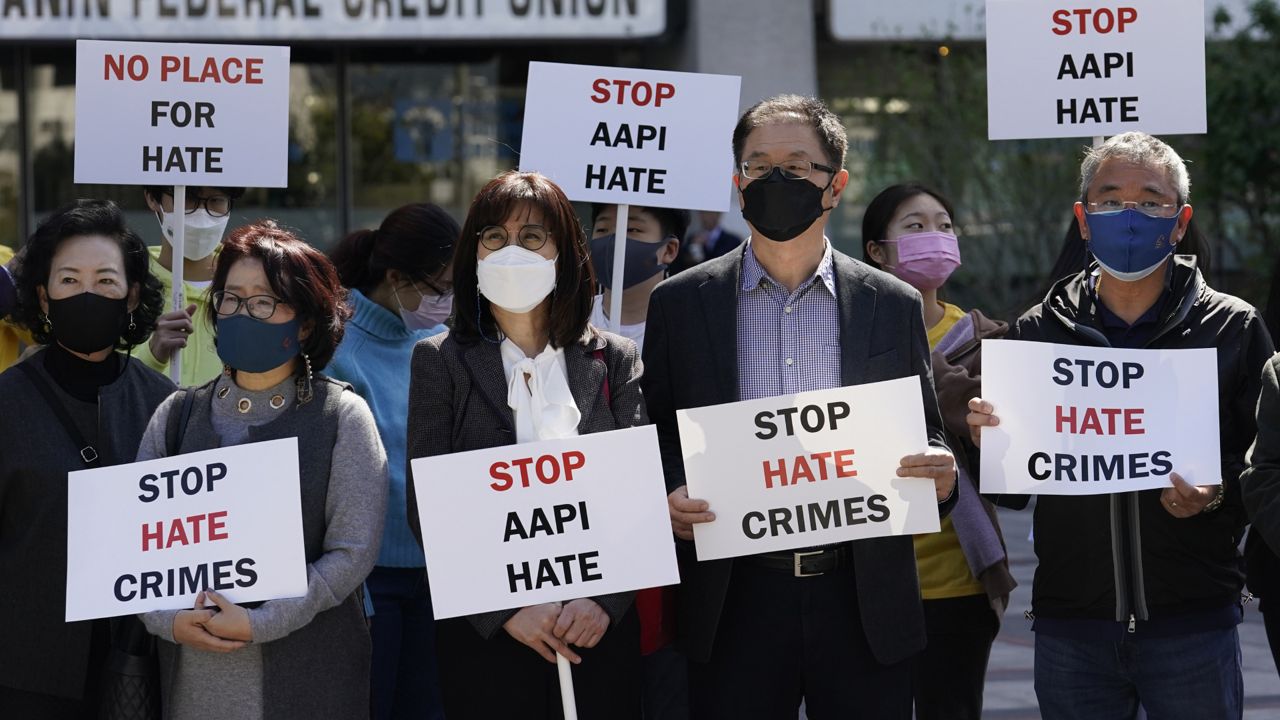LOS ANGELES (CNS) — The Los Angeles County Board of Supervisors voted Tuesday to convene a working group to address rising hate and violence against Asian Americans, Native Hawaiians and Pacific Islanders.
Supervisors Janice Hahn and Holly Mitchell co-authored a motion calling for the new effort of the county's existing Anti-Racism, Diversity and Inclusion initiative.
What You Need To Know
- The L.A. County Board of Supervisors voted to convene a working group to address rising hate and violence against Asian Americans, Native Hawaiians, and Pacific Islanders
- Supervisors Janice Hahn and Holly Mitchell co-authored a motion
- The county's Anti-Racism, Diversity and Inclusion initiative was launched last July in the midst of civil unrest and growing support for the Black Lives Matter movement
- Hahn also asked the county's CEO to work with the Sheriff's Department to see if cameras could be installed along Colima Road in Rowland Heights and Hacienda Heights
"The escalation of attacks against AAPI Americans has been a heartbreaking reminder of how far we have to go toward building a society where everyone can feel safe, accepted, and equal," Hahn said. "L.A. County's Anti- Racism, Diversity and Inclusion Initiative was a response to the racism targeted at the Black community, but this is a framework we need to use to help the AAPI community now."
The ARDI was launched last July in the midst of civil unrest and growing support for the Black Lives Matter movement and is specifically geared to address racism against Black residents.
Mitchell said it was important to her that the board also consider setting up an Equity and Diversity Fund and partner on research to better understand hate, bias and discrimination against all communities of color, which she asked to be included in the motion.
"We pay for what we believe in," Mitchell said, asking that the initial funding target be set at $1 million. "The rise in hate crimes against the Asian American community and long-standing injustices impacting the Black community and communities of color require a sustained investment to ending all forms of hate and systemic racism."
ARDI Executive Director D'Artagnan Scorza highlighted attacks on Asian Americans nationwide and said Los Angeles County is far from immune. He called on everyone to fight back.
"Let's all remember that hate against any one of us is a threat and harm to all of us, and that we all have a collective responsibility to keep each other safe," Scorza told the board.
On a separate motion, approved without discussion by the board, Hahn asked the county's CEO to work with the Sheriff's Department to see if cameras could be installed along Colima Road in Rowland Heights and Hacienda Heights. One option she suggested was be a "flock system" of cameras to capture license plates in the area.
In her motion, Hahn said residents had asked for the cameras.
"These residents are concerned with public safety in the unincorporated areas of the county and they want to not only be safe, but also feel safe," the motion reads.
Some members of the public, including those who advocate on behalf of Asian Americans, pushed back against the idea that cameras would enhance safety.
Connie Chung Joe, CEO of Asian Americans Advancing Justice-Los Angeles, said funding is needed for community intervention. She highlighted an attack on a woman in New York caught on camera while doormen apparently stood by and watched.
"What we saw in the case of an Asian woman being brutally beaten in New York City is that cameras that captured the moment did not protect her safety," Joe said. "What we need to do is offer things like bystander intervention training, which teach residents how to safely intervene and de- escalate a situation if they see an Asian being harassed. What we do not need is more cameras that create a feeling of insecurity for many of us."
The American Civil Liberties Union of Southern California urged members of the public to speak against the cameras motion in a series of Twitter posts.
"We strongly oppose @LACountyBOS's assumption that camera systems, technology and surveillance are an appropriate response to concerns about the safety and dignity of our AAPI communities," the ACLU SoCal wrote. "If history of such responses in the county teaches us anything, increasing policing and deploying law enforcement in communities of color exacerbate — rather than alleviate — insecurity, violence and economic precarity."
The board's vote on the motion to assess the feasibility of cameras was unanimous. However, the matter was voted on with dozens of other items not held for discussion by the board, not as an individual roll call vote.
A report that considers the costs, locations, liability and legal issues as well as other solutions is expected back in 30 days.



